10 Budgeting Tips to Take Control of Your Finances
Lindsey Sharpe • April 28, 2024
Feeling like your money is slipping through your fingers? You're not alone. But don't worry, taking control of your finances is within reach! Here are 10 budgeting tips to get you started:
- Know Your Why: Before you dive into spreadsheets, set some goals. What do you want your budget to achieve? Is it saving for a dream vacation, a down payment on a house, or simply gaining peace of mind? Knowing your "why" will keep you motivated.
- Track Your Income and Expenses: Awareness is key! Gather your bank statements and receipts to see where your money is actually going. There are many budgeting apps and spreadsheets available to help you with this. If you need suggestions, let us know. We have done extensive research on this now that Mint is not available.
- Separate Fixed from Variable: Fixed expenses like rent and car payments stay consistent. While variable spending, like groceries and entertainment, can fluctuate. Knowing the difference helps you plan for both. If you need to cut the budget, you can also break it down further to necessary vs. discretionary. The discretionary will be the category you can adjust to find extra money for savings, if needed.
- Embrace Budgeting Techniques: There's no one-size-fits-all approach. Explore options like the 50/30/20 rule (50% needs, 30% wants, 20% savings) or zero-based budgeting (allocating every dollar of income). I’ve taught the Dave Ramsey class, and he uses this technique. Find what works for you and your family.
- Automate Savings: When available, set up automatic transfers to your savings account. This "pay yourself first" approach ensures you reach your goals without even thinking about it. One less thing to remember to do for the month.
- Tackle Debt: High-interest debt can derail your budget. Focus on paying down those balances with a debt repayment plan. Debt is a thief and can mess up any chance for savings. Take it seriously and aim to be debt free.
- Be a Savvy Spender: Identify areas to cut back. Can you have a brown-bag lunch or find cheaper entertainment options? Every little bit adds up!
- Build Your Emergency Fund: Life throws curveballs. Aim to save 3-6 months' worth of living expenses to handle unexpected costs without blowing your budget. If your monthly income fluctuates, aim for 6 months of savings. Also, if you have a lot of turnover in your industry save for 6 months. You can keep this in a Flourish savings account (ask us about it if interested) and it can earn 5% for you without any fees or withdrawal penalties.
- Review and Refine: Your budget is a living document, not set in stone. Revisit it regularly, adjust as needed, and celebrate your wins! If you have partner, include them and do this as a team. It is important that everyone participates and feels informed about their finances. Reach those goals together!
- Make it Fun! Budgeting shouldn't feel like a chore. Reward yourself for reaching milestones and focus on the positive impact on your financial future.
By following these tips, you can take control of your finances and build a brighter financial future! No situation is too far gone to get back on track and reach those life goals you dream about. If you need help, reach out and lets get together to do more planning that you need.

By Eric Boyce
•
October 7, 2025
This week, CEO Eric Boyce, CFA discusses: 1. economic forecasts has consistently been wrong this year; however, Atlanta Fed GDP Now has been relatively accurate - predicting strong growth in 3Q 2025 2. financial conditions have improved, but so have inflation expectations. Fed has dual mandate, but weakening labor market is the primary focus right now 3. lower US dollar can help fuel inflation, Federal Reserve regional surveys show increase in prices paid 4. low credit spreads, capital spending plans higher, trade policy uncertainty moving lower - no signal of recession at this point 5. private equity and credit markets continue to expend in size and importance

By Kelly Griggs
•
October 1, 2025
Life will always throw curveballs- it’s not a matter of if, but when. The question is, will you be prepared when financial storms come your way? Having a solid, secure financial plan is less about predicting the future and more about being ready for uncertainty and building a foundation that gives you confidence. Building a Confident Financial Plan A strong plan puts you in a position of strength. Preparation doesn’t stop the storm, but it helps you act with clarity instead of panic. Without one, people often find themselves dipping into savings, relying on credit, or feeling overwhelmed by stress. These are warning signs that your financial health may need attention and that you may be reacting instead of leading your financial life. Similarly, preparation today ensures that no matter what happens- rising inflation, interest rate hikes, or even geopolitical shocks- you are not caught off guard. When you’ve already thought through possible scenarios, you can respond wisely instead of scrambling for quick fixes. Steps to Get Started 1. Get Clarity on What You Want. Start by asking: Does my money reflect my priorities? Review your spending over the last three months without judgment. This exercise will reveal whether your dollars are working toward your goals or drifting elsewhere. 2. Define Your Goals. What do you truly want your life to look like? A confident plan aligns your finances with your dreams—whether that’s building wealth, securing retirement, funding education, or creating meaningful experiences with family. Hope is not a strategy; clear goals are. 3. Make Your Money Work for You. Once you know what matters most, position your money intentionally. That could mean saving systematically, investing for long-term growth, or using insurance to preserve what you’ve built and provide stability no matter what comes your way. Take Action Now Most people don’t fail because they made bad decisions—they fail because they made no decisions. Inaction comes at a cost, while small, purposeful steps build confidence and momentum over time. Your financial future doesn’t have to feel uncertain. By crafting a plan now, you create security, resilience, and the ability to face life’s storms with strength, knowing you’ve taken intentional steps to protect your future.

By Eric Boyce
•
September 29, 2025
This week, CEO Eric Boyce, CFA discusses: 1. near term trends in economic growth and employment are diverging. Labor weakness giving Fed cover to lower interest rates. 2. recession probability low, bank lending up, goods inflation growth year-over-year is now positive. 3. consumption and retail sales trends are not unfavorable, but record-high credit card balances are. 4. no sign of US dollar disintermediation - Euro as a percent of global reserves remains flat, and record high foreign investment in US stocks. 5. stock valuation higher - possible near term volatility. positive return outlook, however. 6. the diversification power of alternative investments within a portfolio.

By Boyce & Associates
•
September 25, 2025
Investment management is the professional oversight of assets with the objective of meeting specific financial goals. It includes portfolio construction, risk management, and alignment with an individual’s financial plan . While portfolio growth is important, the primary purpose of investment management is to ensure that capital is allocated intentionally to support long-term financial confidence, rather than focusing on short-term market gains. At Boyce & Associates Wealth Consulting , our philosophy centers on capital preservation and clear alignment with each client’s financial objectives. The sections below outline the definition, principles, and strategies that inform effective investment management, and clarify its primary goal. Investment Wealth Management Definition Investment wealth management is the process of managing a person’s financial assets that support their long-term goals. It involves making decisions about where to invest money, such as in stocks, bonds, or other assets, based on the client’s financial situation, risk tolerance, and objectives. At its core, investment wealth management combines portfolio oversight with a broader financial plan. This involves building and managing an investment strategy while also considering factors such as retirement timelines, tax implications, income needs, and estate planning. The goal is for every investment to support the client’s overall financial picture. Main Goal of Investment Management The goal of investment management is to grow and preserve wealth that supports an individual’s financial objectives. It is not about chasing the highest returns or reacting to market trends. Instead, it focuses on intentional growth within a disciplined and risk-managed strategy. At the center of this approach is principal protection , a priority for many individuals and families, especially retirees, business owners, and those with significant assets. Preserving the money you’ve already earned is often more important than trying to maximize gains. Effective investment management is part of creating a plan for the life you want . For example, someone nearing retirement may need to generate income from their investments while also ensuring their savings last. Their portfolio would likely include a mix of conservative investments, structured withdrawals, and tax-aware planning, all aimed at supporting a stable lifestyle rather than chasing aggressive market gains. Examples of Investment Goals Across Different Life Stages Early Career : Building savings for future goals, such as buying a home or starting a family. Mid-Life : Growing assets for retirement, funding children’s education, or investing in a business. Pre-Retirement : Reducing investment risk, increasing cash flow, and preparing for healthcare costs. Retirement : Generating reliable income, minimizing taxes, and preserving against outliving savings. Legacy Planning : Preserving wealth for future generations, supporting charitable giving, and managing estate transfer. Each of these goals requires a tailored investment approach that aligns with the client’s stage of life, priorities, and risk tolerance. Why Do People Go Into Investment Management Many people turn to investment managers when their financial situation becomes more complex or when they want help making informed, long-term decisions. Common reasons include: Lack of time or expertise Most individuals lack the time to research markets or manage risk independently. They want a professional to handle the details so they can focus on work, family, or personal priorities. Need for tax-efficient strategies As income and investments grow, so does the need to manage taxes. A thoughtful investment plan can help reduce tax impact and improve after-tax returns over time. Increased financial complexity Life events, such as retirement, divorce, inheritance, or selling a business, bring new financial challenges. Investment management provides structure and support during these transitions. Outgrowing DIY investing Many start by managing their own investments, but eventually seek expert guidance to preserve what they’ve built and ensure their portfolio aligns with long-term goals. Professional investment management brings clarity and coordination, especially when wealth, responsibilities, or financial risks increase. 4 Principles That Guide Successful Investment Management A successful investment management strategy is built on four core principles: Philosophy, Process, People, and Performance . These elements provide structure and consistency in managing wealth over time. 1. Philosophy Investment philosophy is the guiding belief behind how money is managed. It reflects the approach taken toward risk, returns, market behavior, and decision-making. A well-defined philosophy helps ensure that investment choices are made consistently, even during periods of market uncertainty. 2. Process Process refers to the step-by-step method used to design, implement, and monitor an investment strategy. This includes the selection of investments, the adjustment of portfolios over time, and the management of risks. A clear process supports disciplined decision-making and reduces the influence of emotion or short-term market noise. 3. People Investment management involves human judgment and relationships. The “people” principle highlights the importance of experienced professionals who understand the financial landscape and the client’s personal goals. Trust and effective communication are essential to building a long-term, effective advisory relationship. 4. Performance Performance measures how well an investment strategy meets its intended goals. It’s not just about returns, but about achieving outcomes in line with the client’s timeline, risk tolerance, and objectives. Long-term, goal-based performance is more meaningful than short-term market results. What Makes a Strategy Effective? Investment Goals and Examples An effective investment strategy should consider not only potential returns but also stability, flexibility, and alignment with personal objectives. Investment goals often vary based on life stage and responsibilities. Below are examples of common goals and the types of strategies that can help support them: Funding retirement by a certain age A long-term, diversified portfolio focused on stable growth and income can help ensure that assets are available to support lifestyle needs in retirement. Preserving wealth across generations A strategy that includes tax planning, risk management , and estate coordination can help ensure assets are transferred efficiently and remain preserved. Creating passive income streams Investments such as dividend-paying stocks, bonds, or real estate can be used to generate regular income without depleting the principal. Each of these goals requires a customized investment plan . There is no one-size-fits-all solution. A strategy is effective when it is realistic, carefully managed, and flexible enough to adjust to changing life circumstances. Investment Strategies for Wealth Management Below are four core strategies commonly employed in well-structured portfolios. Each strategy plays a distinct role in managing risk, enhancing returns, and keeping investments aligned with personal objectives. Asset allocation Asset allocation is the process of dividing investments among various asset categories, including stocks, bonds, and cash. The goal is to balance risk and return based on the investor’s timeline, financial goals, and level of risk tolerance. For example, a younger investor might hold more stocks for growth, while someone near retirement might shift toward bonds for stability and income. Diversification Diversification refers to spreading investments across a range of assets, industries, and regions. A stock that is spread out is better prepared to handle market fluctuations while still pursuing long-term growth. AA/Diversification Disclosure Neither Asset Allocation nor Diversification guarantees a profit or protects against a loss in a declining market. They are methods used to help manage investment risk. Tax-loss harvesting Tax-loss harvesting involves selling stocks to offset tax liabilities resulting from gains from other investments, thereby balancing out the value of these gains. This strategy helps reduce capital gains taxes and can improve after-tax returns. The proceeds from the sale are often reinvested, making similar, but not identical, purchases to keep the portfolio’s overall strategy. Rebalancing Rebalancing means adjusting the portfolio to bring it back in line with the original investment plan. Over time, some investments may grow faster than others, shifting the balance of the portfolio. Rebalancing Disclosure Rebalancing/Reallocating can entail transaction costs and tax consequences that should be considered when determining a rebalancing/reallocation strategy. Frequently Asked Questions About Investment Management What is the 10 5 3 rule of investment? The 10-5-3 rule is a basic guideline that reflects average long-term returns for different types of investments: 10% return from stocks 5% return from bonds 3% return from cash or savings These are not guarantees but estimates based on historical performance. The rule helps set realistic expectations and shows how different investment types carry different levels of risk and reward. It's especially useful when planning long-term goals, such as retirement. What type of investment is best for beginners? For most beginners, the best investments are those that are easy to understand, low-cost, and widely diversified. Common starting points include: Index funds: These track the overall market and are simple, low-cost options. Target-date funds: These automatically adjust the investment mix based on your expected retirement year. Robo-advisors: These offer automated portfolio management with little setup. MF/ETF Disclosure: Mutual Funds and Exchange Traded Funds (ETF’s) are sold by prospectus. Please consider the investment objectives, risks, charges, and expenses carefully before investing. The prospectus, which contains this and other information about the investment company, can be obtained from the Fund Company or your financial professional. Be sure to read the prospectus carefully before deciding whether to invest. An investment in the Fund involves risk, including possible loss of principal. Your goals, risk, and other factors will help you make the best decision on how involved you want to be. Starting with a simple, balanced approach is often the most effective way to proceed. What is the safest investment with the highest returns? No investment is completely risk-free, but some are considered safer than others. Typically, U.S. Treasury bonds, high-yield savings accounts, and certificates of deposit (CDs) are among the safest options. However, safety often comes at the expense of lower returns. If you're seeking higher returns with limited risk, a diversified portfolio that combines stocks and bonds may offer a balanced solution. It’s essential to find the right balance based on your timeline and comfort level with risk, rather than prioritizing the highest return alone. Tax/Legal Disclosure Boyce & Associates Wealth Consulting does not offer legal or tax advice. Please consult a professional regarding your individual circumstances. Blog Disclosure This blog contains general information that may not be suitable for everyone. The information contained herein should not be construed as personalized investment advice. There is no guarantee that the views and opinions expressed in this blog will come to pass. Investing in the stock market involves gains and losses and may not be suitable for all investors. Information presented herein is subject to change without notice and should not be considered as a solicitation to buy or sell any security. (FirmName) does not offer legal or tax advice. Please consult the appropriate professional regarding your individual circumstance. Past performance is no guarantee of future results.

By Eric Boyce
•
September 22, 2025
This week, CEO Eric Boyce, CFA discusses: 1. Discussion of Leading economic indicators - negative trends last few years, but coincident indicators continue to move higher 2. Strong relative performance from gold - still viable as a diversification tool 3. money market balances still rising ($7.7 trillion) - lots of market liquidity available 4. infrastructure spending driven by AI, especially in the US - spending likely to continue for several years 5. tariff revenue now 18% of household income tax receipts 6. consumer spending trending down, earnings estimate growth largely driven by Mag 7, tech stocks

By Eric Boyce
•
September 9, 2025
This week, CEO Eric Boyce, CFA discusses: 1. labor market is losing some steam, especially in tariff-impacted sectors; job growth falling short of breakeven 2. downside risk to payroll growth, unemployment next few months 3. housing market remains challenged due to affordability; prospective buyer traffic/builder confidence weak 4. rise in prime and subprime auto loans as a proxy for credit conditions 5. valuations higher based on price/sales, price/book and price/earnings 6. deceleration of growth in Mag 7 stocks; however, concentration of Mag 7, media and telecom create strong influence over the S&P 500

By Eric Boyce
•
September 2, 2025
This week, CEO Eric Boyce, CFA discusses: 1. housing affordability woes, electricity prices moving up with data center demand 2. sentiment much higher for the higher income population than for lower incomes 3. Atlanta Fed GDP estimate 3.5% annualized for 3rd quarter, despite slowing in consumer spending 4. valuations high, but forward performance coming off a market high is very respectable 5. market breadth improving, foreign ownership increasing, margins balances increasing 6. market expects 0.25% rate decrease in September, but inflation (PCE) has picked up and likely to move slightly higher next few months 7. yields converging, yield curve steepening, NO sign of recession in the high yield market 8. Foreign central banks now hold more gold than US treasuries



